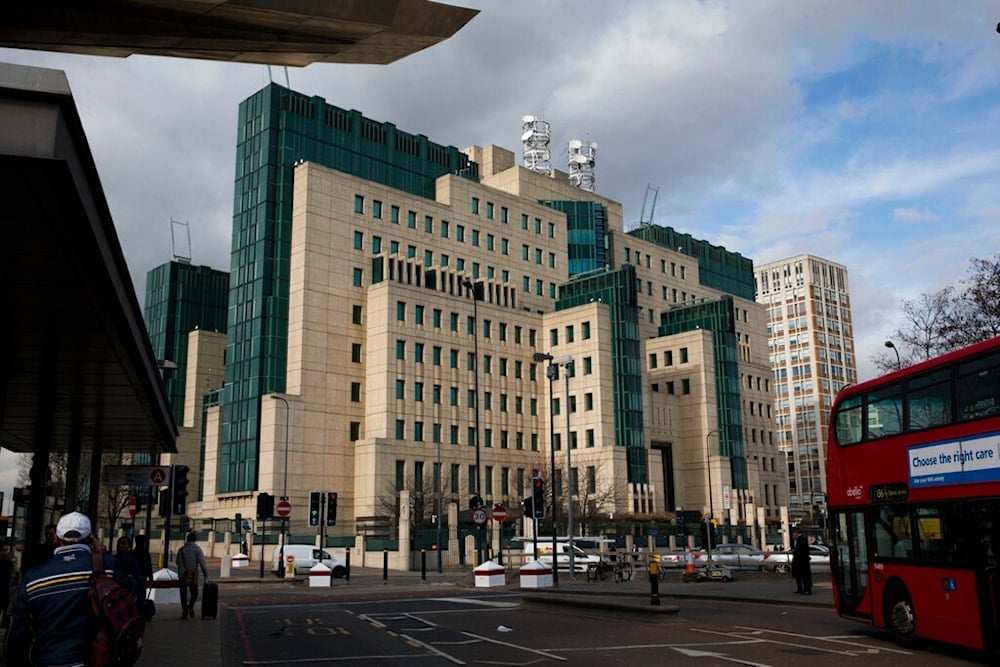Declassified UK files reveal MI6 sought Assad's aid against Al Qaeda
Despite numerous allegations of human rights violations against al-Assad, Western governments, including the UK, viewed his secular government as a potential partner in the fight against Al Qaeda during the early 2000s.
-

This Thursday, March 5, 2015 file photo shows a general view of the MI6 building in London. (AP)
A new Declassified UK report revealed that in 2004, senior MI6 officials sought the assistance of former Syrian President Bashar al-Assad to curtail the flow of foreign jihadists entering Iraq.
These fighters, linked to Al Qaeda, were mounting attacks on US forces following the fall of Saddam Hussein.
Among them was Abu Mohammed al-Jolani, also known as Ahmad al-Sharaa, who later played a leading role in the war on Syria and the eventual overthrow of Assad.
British intelligence identified Syria as a key transit point for jihadists entering Iraq.
A declassified briefing note from April 2004 revealed the UK's strategy, stating, "Our primary concern remains the flow of terrorists into Iraq through Syria. We are pushing the Syrians hard to accept a visit from a team of senior officials from the FCO [Foreign and Commonwealth Office], SIS [Secret Intelligence Service], and MOD [Ministry of Defence] to address this issue."
The document noted early signs of an emerging intelligence relationship that the UK hoped would yield results.
A request for collaboration
Former UK Foreign Secretary Jack Straw wrote to his Syrian counterpart, encouraging cooperation. However, it remains unclear whether Assad's government acted on these requests.
By 2005, the Foreign Office acknowledged Syria's role as the primary entry point for jihadists, adding that "the Syrians could do more to tackle this."
Despite numerous allegations of human rights violations against Assad, Western governments, including the UK, viewed his secular government as a potential partner in the fight against Al Qaeda during the early 2000s.
Intelligence-sharing arrangements extended to controversial practices, with countries like Syria, Libya, and Egypt used by Western agencies to detain and interrogate suspects.
Former CIA officer Robert Baer remarked in 2004, "If you want them to be tortured, you send them to Syria."
Jolani's rise
The revelations also shed light on Abu Mohammed al-Jolani's transformation. Initially fighting with Al Qaeda in Iraq, Jolani later formed the Nusra Front.
Over time, he rebranded his group as Hay'at Tahrir al-Sham (HTS), which remains classified as a terrorist organization by the UK.
Despite this designation, recent British engagement with al-Jolani signals evolving counterterrorism priorities.
Al-Jolani now claims his group no longer supports international terrorism and instead focuses on governing areas in Syria.
Read more: Syria's new leadership asserts strategic alliance with Russia
These disclosures expose the changing priorities of UK foreign policy. While then-Prime Minister Tony Blair sought Assad's cooperation in 2004, the current Foreign Secretary, David Lammy, has described Assad as a "butcher with the blood of countless innocents on his hands."
On December 9, Senior British Minister Pat McFadden said that London may consider removing the proscribed status of HTS.
When asked if the British government would have to look again into the proscription of HTS, McFadden told Sky News, "We will consider that. And I think it will partly depend on what happens [next]."

 3 Min Read
3 Min Read








